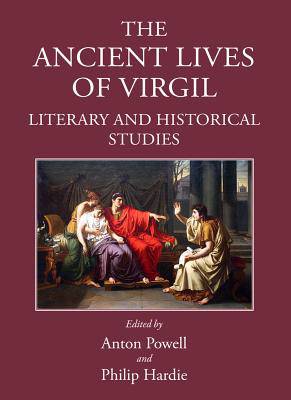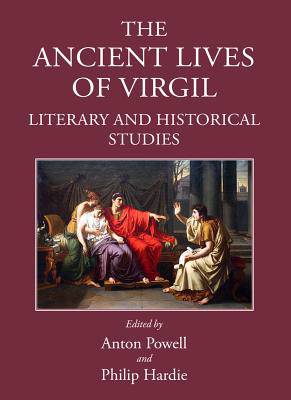
Je cadeautjes zeker op tijd in huis hebben voor de feestdagen? Kom langs in onze winkels en vind het perfecte geschenk!
- Afhalen na 1 uur in een winkel met voorraad
- Gratis thuislevering in België vanaf € 30
- Ruim aanbod met 7 miljoen producten
Je cadeautjes zeker op tijd in huis hebben voor de feestdagen? Kom langs in onze winkels en vind het perfecte geschenk!
- Afhalen na 1 uur in een winkel met voorraad
- Gratis thuislevering in België vanaf € 30
- Ruim aanbod met 7 miljoen producten
Zoeken
€ 94,95
+ 189 punten
Omschrijving
The Ancient Lives of the poet Virgil, written in prose (and sometimes in verse), have long enjoyed great, though controversial, influence. Modern critics have often been scornful of these Lives, for trying to construct biography of the poet from allegorical reading of his verse. Yet some elements of the Lives are trusted, and quietly adopted as canonical, most notably the dating of Virgil's death. Some vignettes in the Lives have been cherished for their image of an emotive poet, as when Virgil, by evoking in verse the premature death of Augustus' nephew Marcellus, caused the young man's bereaved mother to faint. Less romantic detail from the Lives, as of Virgil's privileged material circumstances at the heart of the Augustan regime, has been less regarded. The present volume, from a distinguished international team, aims to revalue the Ancient Lives of Virgil from a variety of angles and in a variety of scholarly genres. The allegory within the Lives is here studied for its own sake, and shown to be part of a developed Graeco-Roman school of interpretation. The literary character of the verse Life attributed to Phocas is respectfully analysed. Certain political references within the best-known prose Life, the `Suetonian-Donatan', are shown to be apparently independent of allegory, and to be worth prospecting for new information on the poet's personal history. And ideas of Virgil received and developed with brio in the Middle Ages and the Renaissance are here traced back to the Ancient Lives of the poet composed in Antiquity.
Specificaties
Betrokkenen
- Uitgeverij:
Inhoud
- Aantal bladzijden:
- 224
- Taal:
- Engels
- Reeks:
Eigenschappen
- Productcode (EAN):
- 9781910589618
- Verschijningsdatum:
- 14/12/2017
- Uitvoering:
- Hardcover
- Formaat:
- Genaaid
- Afmetingen:
- 157 mm x 236 mm
- Gewicht:
- 544 g

Alleen bij Standaard Boekhandel
+ 189 punten op je klantenkaart van Standaard Boekhandel
Beoordelingen
We publiceren alleen reviews die voldoen aan de voorwaarden voor reviews. Bekijk onze voorwaarden voor reviews.








